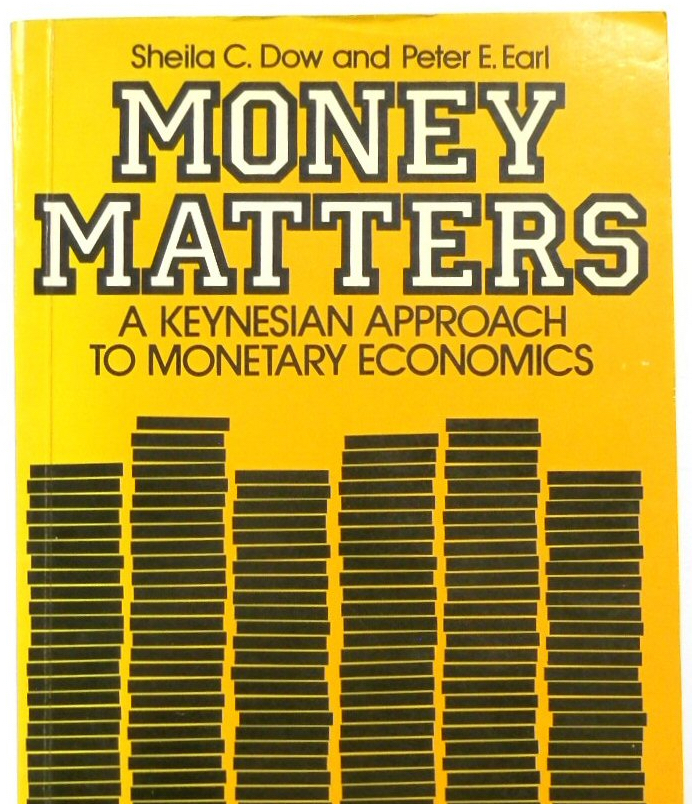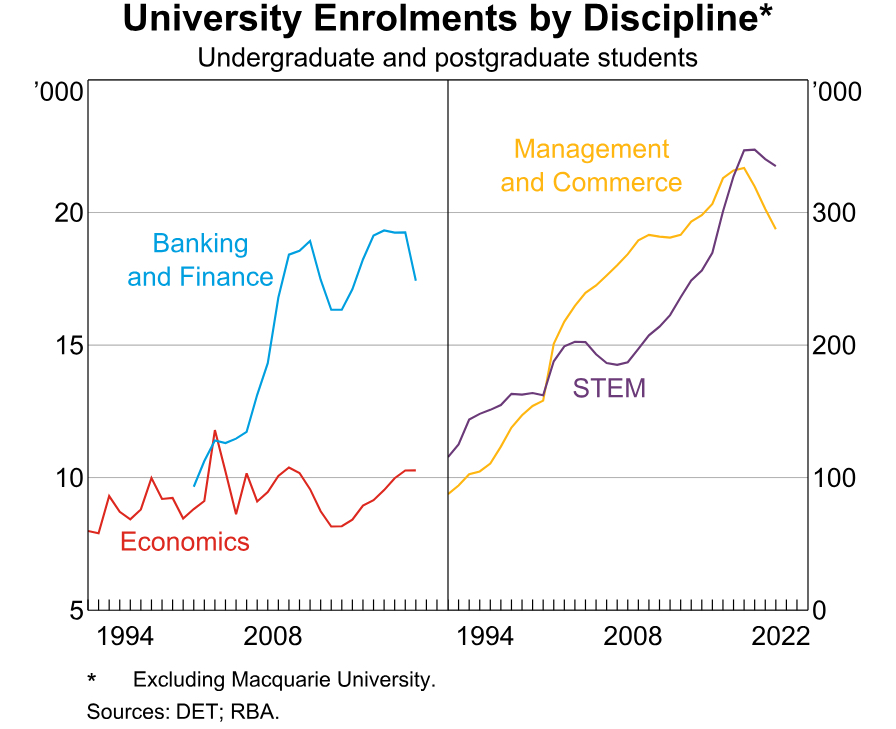
Where it (almost) all began
Economics has become “a socially exclusive subject”, with a higher share of students from advantaged backgrounds than is the case for most other disciplines, Jacqui Dwyer, head of the information department at the Reserve Bank of Australia told an economics forum yesterday.
This is one of a series of related trends in demand for an education in the most influential of social sciences that continues to attract the attention (and the research resources) of the RBA.
“As at high school, at university economics is perceived as a risk to study, with an uncertain relevance and less well-defined career path than other disciplines” Dwyer explained to the Economic Society of Australia.
“Against a background of fairly stagnant enrolments in economics, many of the trends in diversity that we have seen at school continue at university.
“There has always been a gap between female and male participation in economics at university (unlike school where balance between sexes once existed). This gap became progressively wider before efforts to increase female participation saw it increase – but only back to a level where males outnumber females by nearly two to one.
“Even more pronounced than the decline in female participation is the loss of diversity in socio-economic status.
Stay Ahead. Stay Informed.
Concise. Candid. Provocative.
Get the daily banking news that matters from the industry's most experienced insiders.
“The trend rise in participation by students of high socio-economic status at high school continues into university, so that over 55 per cent of economics students are from advantaged backgrounds, while those from disadvantaged backgrounds are a distinct minority.
“In fact, economics has become a socially exclusive subject, with a higher share of students from advantaged backgrounds than is the case for most other disciplines.”
Perhaps the most surprising detail in Dwyer’s talk is that “fewer universities are offering economics” though she did not say how many.
“Furthermore, more than half of all enrolments in economics are at universities in metropolitan New South Wales and the Australian Capital Territory, presenting geographical barriers to diversity.”
Demand for an advanced education in economics; it seems there simply ain’t much.

Interest in economics at university, Dwyer said, “is low, even for those who studied it in Year 12.
"Almost two-thirds of Year 12 economics students, and around 95 per cent of other Year 12 students, applying for tertiary institutions in New South Wales and the Australian Capital Territory did not preference an economics course for university.”??With the (apparently) softer option of the undeniably more popular option of studying business (or similar) Dwyer asked: “does it pay to study economics?”
The answer is Yes, to the hard-heads at the RBA, who back this claim up with data.
Part of the answer, Dwyer explained “relates to the types of jobs one can obtain with an economics degree” - business and financial journalism among them.
“Another part relates to the skills that are developed through studying economics and what employers are prepared to pay for them.”
Updating earlier analysis by the RBA, Dwyer shared a chart that puts the average earnings for economists at around $95,000, a tad better than average earnings for tech mavens and a tad less than the income of engineers.